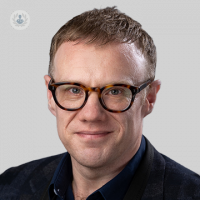An in-depth analysis of Adult ADHD: part 2
Written by:In the second article of a two-part series, esteemed consultant general adult and liaison psychiatrist Dr Nick Walsh explains the various types of treatments for adult ADHD, discussing what to consider you are selecting treatment, in order to find the one which is best for you.

What are the types of treatment available and can ADHD be managed without medication?
The first recommended treatment, according to the UK NICE (National Institute for Health and Care Excellence) guidelines, is medication because this is the most effective treatment. In adults, up to 80% of people respond to stimulant treatments (the most effective treatments) and they usually respond quite well. The other option is non-stimulant medication, and these may be more suitable for some people.
Some patients may choose to have either Cognitive Behaviour Therapy (CBT) or coaching to help with symptoms of ADHD. It's also important to look at lifestyle. Similar factors which improve general physical and mental health are very important for ADHD, particularly thinking about diet and avoiding highly processed food and refined sugar.
It is also beneficial for people with ADHD to get regular exercise because exercise specifically improves concentration and is generally good for the brain and mental health, not just physical health.
If someone suffering from ADHD is having difficulty sleeping, they should try to manage their sleep. This is extremely important because poor sleep affects concentration, memory and energy, as well as mood and stress.
Practices such as meditation and mindfulness can gradually improve people's concentration if you keep doing them regularly. Additionally, it's important to moderate things like alcohol and caffeine intake, which can affect mood, concentration and sleep and cause people to have health difficulties.
Some people may wish to have coaching or CBT as well as medication, while some people may prefer to have coaching or CBT alone.
What should adults consider when they are selecting ADHD treatment?
Medication is the first recommended option because it is highly effective and safe. The specific choice of medication will vary from person to person. It's important to understand that with ADHD, it is possible for treatments to be individualised and tailored to each person, perhaps more so than in other areas of mental health treatment.
In addition, it is essential to discuss this with a doctor who is experienced and whom you feel understands your life and your treatment goals, and with whom you have a good relationship. You really want to be working alongside a specialist that can help you and can target the treatment to difficult areas, in order to get the maximum benefit and the minimum side effects.
As previously mentioned, coaching and cognitive behavioural therapy (CBT) are also useful in a similar way. It's important to find a therapist or a coach who not only has appropriate experience and qualifications but also with whom you develop a good relationship, so that you can continue to work with them over time. This is particularly important if you have any other mental health conditions besides ADHD.
Additionally, it is important to focus on getting those treated because symptoms from other mental health conditions can also interact with ADHD symptoms, and together they may have a significant impact on quality of life.
When considering treatment, you should also consider nutrition and exercise. You may wish to think about whether it would be helpful to see a personal trainer to improve your overall fitness and nutrition and you should also look at things like alcohol and caffeine intake, and try and minimise those.
In general, a combination of lifestyle changes, medication and therapy or coaching will give better outcomes. A healthy lifestyle is really a solid foundation for ADHD treatment, and will make any therapy or medication more effective. Often these go together, and starting medication and coaching or therapy can enable people to make and sustain changes to their lifestyle in the longer term.
If you are an adult who has or suspects that you have ADHD and would like to discuss this further with Dr Walsh, do not hesitate to book an appointment by visiting his Top Doctors profile today.


